Another Bangladeshi makes it to 2025 Forbes list
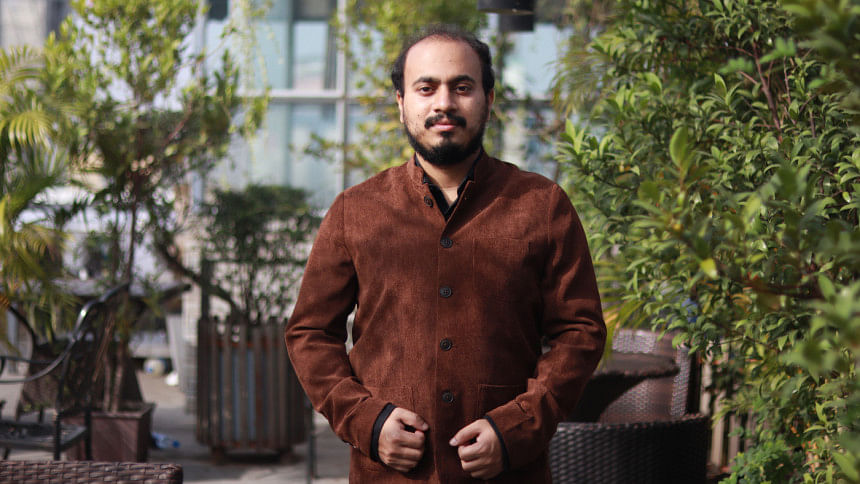
In the early hours of a stormy day, while returning from a flood-affected farming community, Sayed Zubaer Hasan received an unexpected nudge from a teammate: "Check Google. Forbes just released the list." Moments later, his name appeared on Forbes' 2025 '30 Under 30 Asia' under the Social Impact category. But instead of basking in the glow, he thought about the farmers they had just visited — struggling under rising waters, uncertain yields, and collapsing markets.
For Hasan, this wasn't a personal victory. "This is not just a company for us," he explained. "Krishi Shwapno was always a movement — essentially meant to accelerate the dreams of farmers, not mine."
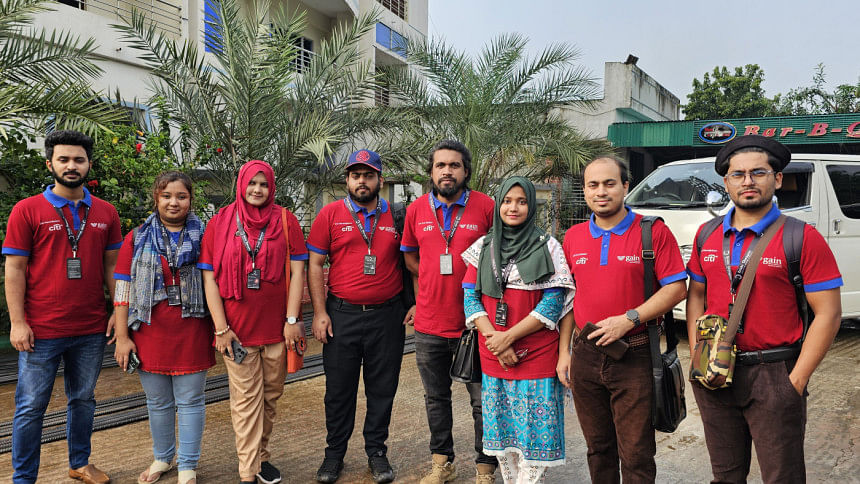
From farmer's son to agritech changemaker
Born into a farmer's family, Hasan's earliest memories aren't of computers or classrooms — they're of soil, sweat, and unspoken frustration. "My father didn't know how much fertiliser to use, how to test the soil, or when to sell," he recalled. "He would work four to six months, then sell his crops at whatever price the middleman offered. There was no negotiation — just survival."
That helplessness shaped Krishi Shwapno. Founded in 2019, the startup offers a 360-degree solution for smallholder farmers, from pre-harvest planning to post-harvest market linkage.
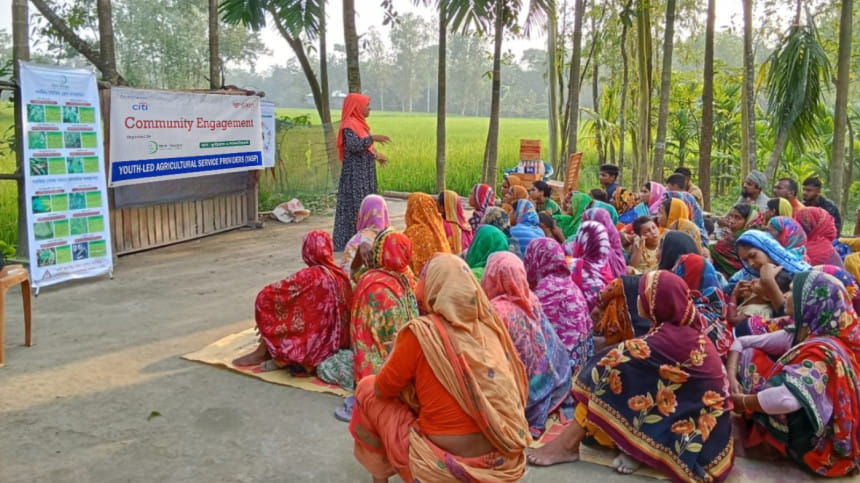
Tech in the trenches
In a country where over 80 per cent of farmers are smallholders, flashy technology means little without contextual grounding. Hasan knew this from the start. "We didn't throw apps at farmers and walk away," he explained. "We started with soil-testing kits, because even that basic data was missing."
Krishi Shwapno's model is hyper-local. Through regional agents and field incubation, farmers receive training in financial literacy, sustainable practices, and climate-resilient methods. "We give them digital learning content, hands-on sessions, and help them turn farming from mere survival to a form of enterprise."
But the real test was market access. "Even after improving their methods, farmers were stuck," said Hasan. "Without data-driven market forecasting or logistics support, they had no choice but to sell to local middlemen — often at a loss." Krishi Shwapno's platform closes that loop, connecting farmers directly with buyers, processors, and urban retailers.
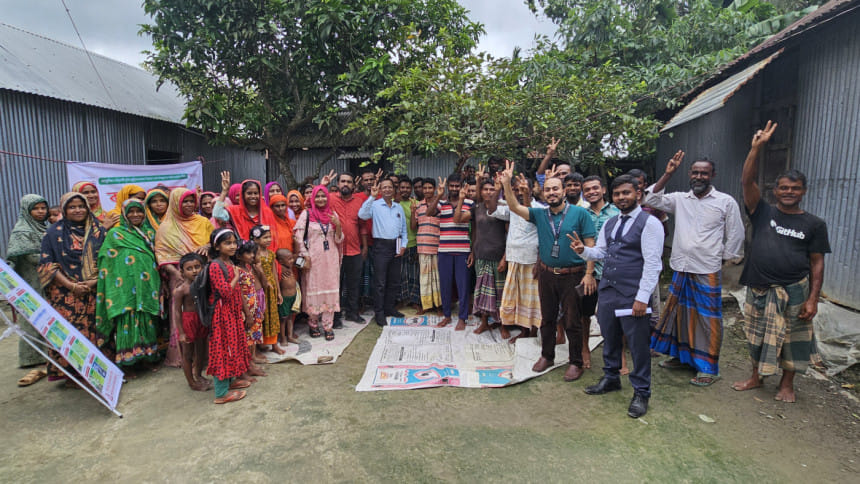
Clean agriculture, not just buzzwords
As global eyes turn to food safety and climate-smart agriculture, Krishi Shwapno is quietly pushing Bangladesh in that direction. "Clean agriculture isn't just about reducing pesticide use. It's about traceability, climate resilience, and dignity in production," said Hasan.
Their training modules emphasise safe pesticide use, packaging hygiene, and crop selection tailored to climate-vulnerable regions. In char and coastal areas, where flash floods and soil salinity wreak havoc, Krishi Shwapno equips farmers with the tools and knowledge to adapt and survive.
"Farming in these areas shouldn't be a death sentence," he remarked. "It should be a badge of resilience."
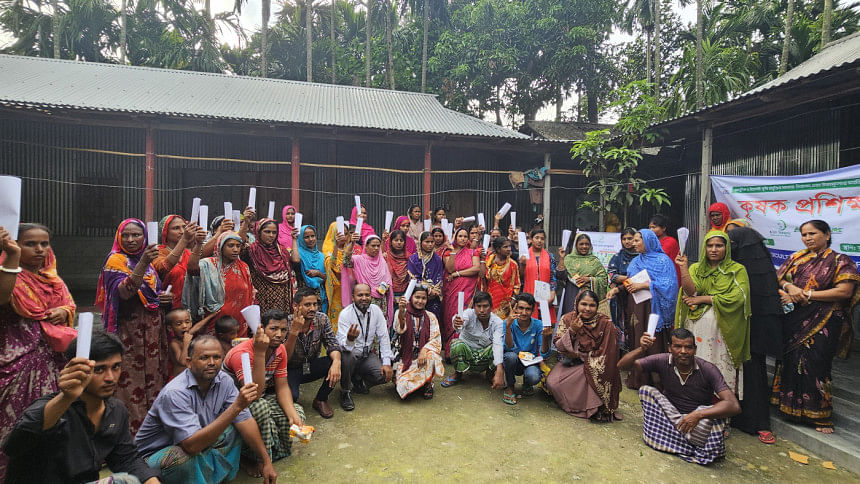
A different kind of entrepreneurship
Hasan doesn't talk like your typical CEO. There are no growth charts or jargon-loaded pitches. Instead, he speaks in the language of empathy, responsibility, and pivoting. "Social entrepreneurship only works if it comes from a place of pain," he explained. "Ours did. That's why it works."
But he doesn't romanticise it either. "This is not a glory trip. You need a problem-solving mindset, yes — but more than that, you need to execute. And when your first idea doesn't work, you pivot." Krishi Shwapno started as a tech tool. Today, it's a service ecosystem. That transformation, he insists, is not a side note — it's the story.
The road ahead
With 27,000 active smallholder farmers in their network and operations in 15 regions, Krishi Shwapno is expanding, but not by chasing scale for scale's sake. "We want to build depth before we build width," he said. Their long-term vision? To ensure 50 per cent of Bangladesh's farmers adopt clean, climate-resilient practices within the next three years.
That's ambitious — but then again, so is turning generational pain into generational change.
A call, not a celebration
When asked what advice he'd give to other young entrepreneurs, Hasan paused. "Don't start a startup to escape a job. Start it because you see something broken and can't sleep until it's fixed."
He emphasised three traits every impact-driven entrepreneur must nurture: the ability to feel (empathy), the discipline to act (execution), and the courage to adapt (pivoting). "Vision without execution is just daydreaming," he said.
As we wrapped the interview, he remarked, "Recognition is nice, but the real work begins the next day."
And perhaps that's the real measure of impact — not who makes the list, but who keeps showing up when the monsoon hits.
Photo: Courtesy

 For all latest news, follow The Daily Star's Google News channel.
For all latest news, follow The Daily Star's Google News channel. 


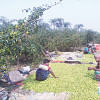
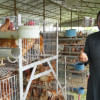


Comments